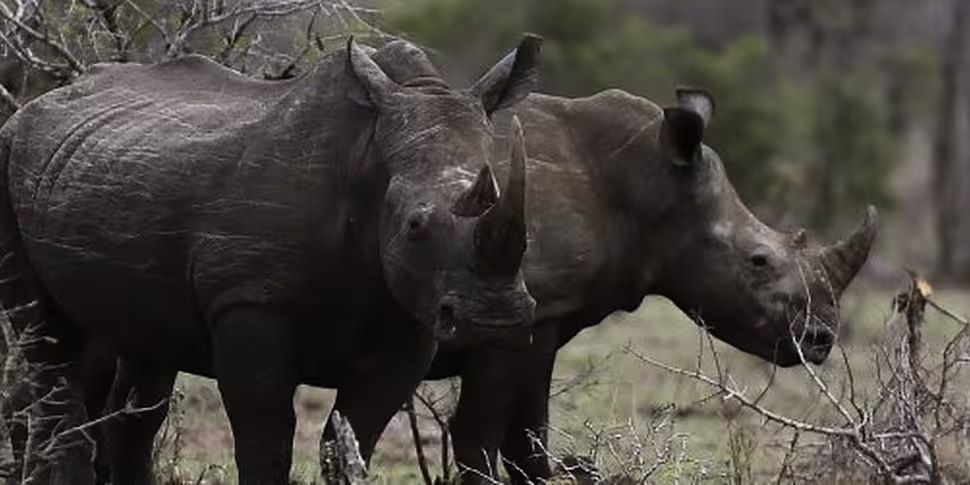Wildlife conservationists have expressed their alarm at the news that South Africa is to lift a ban on the domestic trade and limited export of rhino horns.
South Africa introduced a moratorium on domestic trade in rhino horn in 2009 and an international ban has been in place since 1977.
Draft regulations, which have now passed the public consultation phase, will seek to allow a foreign national to export up to two horns “for personal purposes.”
Conservationists have argued that lifting the export ban will only serve to worsen a poaching crisis that has led to fears the species could be facing extinction within a decade.
The past ten years has seen a huge rise in the value of rhino horn, spurred by demand in Asian countries where some consumers believe – without any medicinal evidence – that it can cure illnesses including cancer and impotence.
The horn is actually composed of keratin, the same substance as human fingernails.
South Africa is home to nearly 70% of the rhinos left on Earth.
The 20,000 remaining South African rhinos make up 80% of the African population - down from the several hundred thousand that called the continent home before the 1800s.
In 2007 the country reported losing just 13 rhinos to poaching. That number rose to 83 in 2008 and last year it was 1,054.
The poaching is not only confined to South Africa. Last week a 5-year-old rhino was shot dead by poachers who broke in to a Paris zoo and used a chainsaw to remove his horn.
The South African government has lost a number of court battles to preserve the 2009 ban – which has been challenged by rhino breeders who argue that poaching could actually be undercut by a regulated trade.
Conservationists on the other hand, argue that South Africa’s hard-pressed enforcement agencies will find it next to impossible to monitor a legal trade – allowing criminal syndicates to launder illegal horns into the legal market.
International rhino conservation charity ‘Save the Rhino’ has expressed grave concerns about the direction taken by the South African government.
The charity’s international director said the new legislation is not in the animal’s interest and is a “financially motivated decision.”
“Since there is virtually no consumer market for rhino horn in South Africa, it is clear that this legislation poses a huge risk for leakage into the black market, and could prove completely unpoliceable as criminals exploit weak, over-stretched enforcement agencies,” she said.

Hope, the rhino, walks in her pen during a break in surgery in her pen in Bela Bela, South Africa after surgery to repair her injuries inflicted by poachers, 20-05-2016. Image: AP Photo/Denis Farrell-File
South African Rhino breeder, John Hume told the Associated Press the legislation was "a step in the right direction."
"Banning the trade in horn has made the horn more and more and more valuable. Had we never banned it, the price of horn would never have got to where it is now," he said. "And that Parisian rhino would have been safe in its zoo because its horn would have been worth a fraction of what it is."
A legalized trade would allow large-scale breeders like Hume to sell stockpiles of horn harvested from living animals.
In an interview with National Geographic last year, Hume revealed that he has been stockpiling horn for years and had amassed approximately five tons.
He hopes to one day legally sell the stockpile for approximately €42m.
Campaigners have warned that South Africa could jeopardise its lucrative wildlife tourism economy by moving forward with plans to lift the ban.
"The risk we run at the moment is that if we open up trade and poaching escalates we will have no rhinos in the wild,” Allison Thomson, a South African campaigner against legalization, told the Associated Press. “We will only have rhinos on farms, being farmed like cows."









